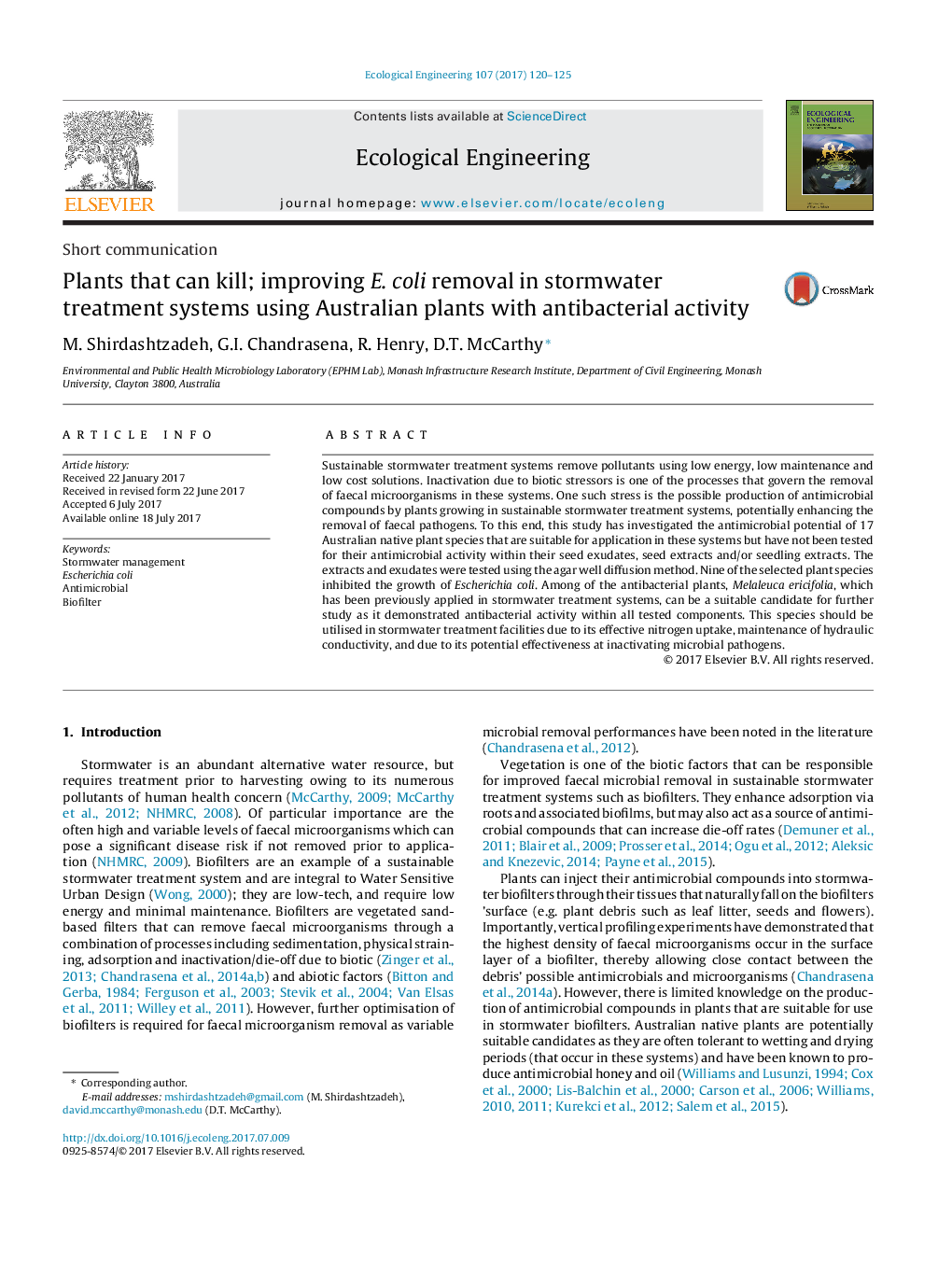| Article ID | Journal | Published Year | Pages | File Type |
|---|---|---|---|---|
| 5743666 | Ecological Engineering | 2017 | 6 Pages |
â¢Water treatment by using Australian native plants.â¢Plant selection for microbial removal through vegetated systems.â¢Antibacterial activity of plant seeds and seedlings against E. coli.
Sustainable stormwater treatment systems remove pollutants using low energy, low maintenance and low cost solutions. Inactivation due to biotic stressors is one of the processes that govern the removal of faecal microorganisms in these systems. One such stress is the possible production of antimicrobial compounds by plants growing in sustainable stormwater treatment systems, potentially enhancing the removal of faecal pathogens. To this end, this study has investigated the antimicrobial potential of 17 Australian native plant species that are suitable for application in these systems but have not been tested for their antimicrobial activity within their seed exudates, seed extracts and/or seedling extracts. The extracts and exudates were tested using the agar well diffusion method. Nine of the selected plant species inhibited the growth of Escherichia coli. Among of the antibacterial plants, Melaleuca ericifolia, which has been previously applied in stormwater treatment systems, can be a suitable candidate for further study as it demonstrated antibacterial activity within all tested components. This species should be utilised in stormwater treatment facilities due to its effective nitrogen uptake, maintenance of hydraulic conductivity, and due to its potential effectiveness at inactivating microbial pathogens.
